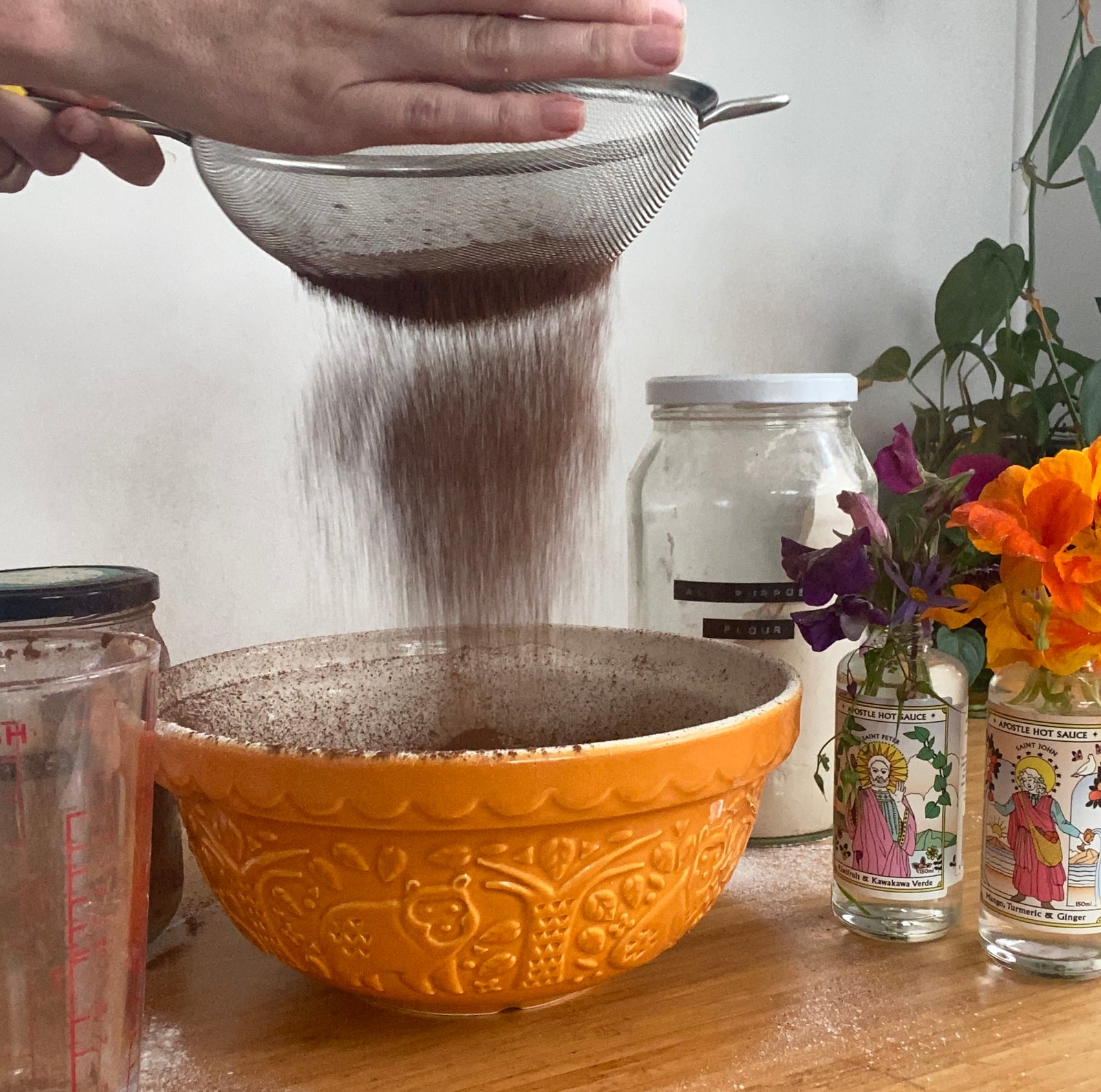Baking is kind of like an art, and you usually have to be pretty careful and exact. But, there are moments when you're missing an ingredient or need to accommodate special diets. No worries! There are loads of simple swaps for baking that can rescue the situation and make sure your treats come out super tasty.
1. Ground Flaxseed for Eggs
For those following a vegan diet or dealing with an egg allergy, ground flaxseed can be a game-changer in baking. To replace one egg, simply mix 1 tablespoon of ground flaxseed with 3 tablespoons of warm water. Let the mixture sit for a few minutes until it thickens, resembling the consistency of beaten eggs. This flaxseed "egg" not only binds your ingredients together but also adds a nutty flavour and provides a healthy dose of omega-3 fatty acids. Click here for more info on flax eggs.
2. Homemade Self-Raising Flour
Self-raising flour is a staple in many baking recipes, especially for cakes, muffins, and quick breads. But you don't need to take up precious pantry space by ensuring you have it on hand, making your own self-raising flour is incredibly easy. For every cup of all-purpose flour, simply add 1 1/2 teaspoons of baking powder and 1/4 teaspoon of salt. Sift the mixture several times to ensure even distribution of the ingredients. Now you have a homemade self-raising flour ready to use in your recipes.
3. Sugar substitutes
Both maple syrup and honey bring deliciously distinct flavors to your baking while serving as natural sweeteners. When substituting for granulated sugar, use 3/4 cup of maple syrup or honey for every cup of sugar. Keep in mind that these liquids add moisture, so consider reducing other liquid ingredients in the recipe slightly. The unique taste of maple syrup or the floral notes of honey can elevate your cookies, pancakes, and certain cakes to a whole new level of deliciousness.
Erythritol is a natural sugar alcohol that is nearly calorie-free and does not affect blood sugar levels. It is an excellent substitute for sugar in recipes, especially for those following a low-carb or keto diet. When using erythritol, replace sugar with an equal amount, as it measures 1:1 with sugar. Erythritol works well in a variety of baked goods, including cookies, brownies, and cheesecakes, providing the sweetness without the extra calories and carbohydrates.
4. Buttermilk
If you don’t have buttermilk on hand but find the recipe you are using calls for it, no problems! Simply add one tablespoon of vinegar (apple cider works well) or lemon juice to a cup of milk or mylk.
5. Swapping Butter for Oil
In baking, fats like butter and oil play a crucial role in providing moisture and richness to your creations. If you're looking to switch things up or accommodate dietary preferences, replacing butter with oil is a great option.
-
Quantities: Butter and oil are not always interchangeable in a 1:1 ratio due to their different compositions. When substituting butter with oil, the general rule of thumb is to use 3/4 cup of oil for every 1 cup of butter in the recipe. This adjustment ensures your baked goods maintain the right texture and moisture content.
-
Best Oils to Use:
- Canola Oil: A neutral flavoured oil, canola oil is low in saturated fat and works well in baking. It has a light texture, allowing it to blend seamlessly with the batter. Canola oil is suitable for cakes, cupcakes, and quick breads.
- Coconut Oil: If you enjoy the subtle coconut flavour, coconut oil can be a yummy addition to your baked goods. Use melted coconut oil as a 1:1 substitute for butter. It's excellent for recipes like cookies, bars, and certain cakes.
- Olive Oil: Extra virgin olive oil adds a slightly more aromatic flavour to your baking. It's best used in recipes where the flavour complements the other ingredients, such as citrus-flavoured cakes or olive oil-based desserts. When substituting olive oil for butter, use a 3/4:1 ratio.
Happy baking, refillers!

